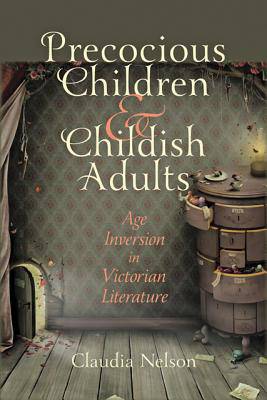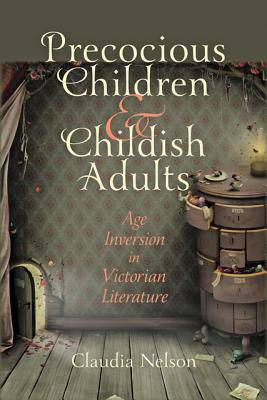
- Afhalen na 1 uur in een winkel met voorraad
- Gratis thuislevering in België vanaf € 30
- Ruim aanbod met 7 miljoen producten
- Afhalen na 1 uur in een winkel met voorraad
- Gratis thuislevering in België vanaf € 30
- Ruim aanbod met 7 miljoen producten
Precocious Children & Childish Adults
Age Inversion in Victorian Literature
Claudia NelsonOmschrijving
Especially evident in Victorian-era writings is a rhetorical tendency to liken adults to children and children to adults. Claudia Nelson examines this literary phenomenon and explores the ways in which writers discussed the child-adult relationship during this period.
Though far from ubiquitous, the terms "child-woman," "child-man," and "old-fashioned child" appear often enough in Victorian writings to prompt critical questions about the motivations and meanings of such generational border crossings. Nelson carefully considers the use of these terms and connects invocations of age inversion to developments in post-Darwinian scientific thinking and attitudes about gender roles, social class, sexuality, power, and economic mobility.
She brilliantly analyzes canonical works of Charles Dickens, Charlotte Brontë, William Makepeace Thackeray, Bram Stoker, and Robert Louis Stevenson alongside lesser-known writings to demonstrate the diversity of literary age inversion and its profound influence on Victorian culture.
By considering the full context of Victorian age inversion, Precocious Children and Childish Adults illuminates the complicated pattern of anxiety and desire that creates such ambiguity in the writings of the time. Scholars of Victorian literature and culture, as well as readers interested in children's literature, childhood studies, and gender studies, will welcome this excellent work from a major figure in the field.
Specificaties
Betrokkenen
- Auteur(s):
- Uitgeverij:
Inhoud
- Aantal bladzijden:
- 224
- Taal:
- Engels
Eigenschappen
- Productcode (EAN):
- 9781421405346
- Verschijningsdatum:
- 2/07/2012
- Uitvoering:
- Hardcover
- Formaat:
- Ongenaaid / garenloos gebonden
- Afmetingen:
- 150 mm x 229 mm
- Gewicht:
- 408 g

Alleen bij Standaard Boekhandel
Beoordelingen
We publiceren alleen reviews die voldoen aan de voorwaarden voor reviews. Bekijk onze voorwaarden voor reviews.








